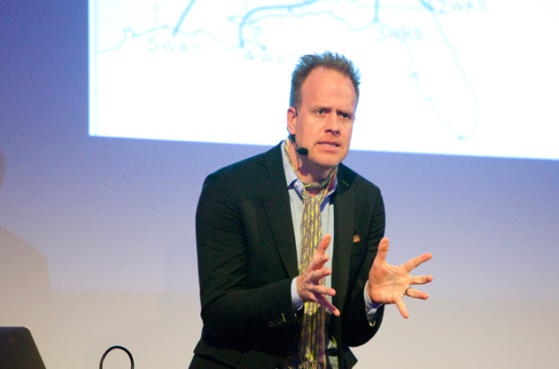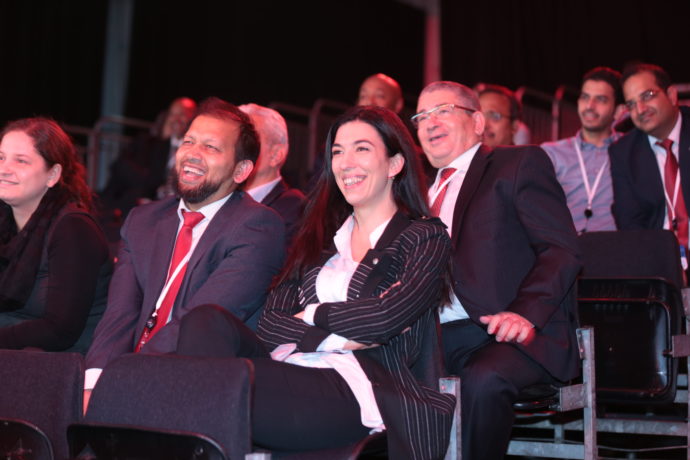
(Svanholmen, Stockholm, Sweden)
“What do you speak on?” is probably the most common question professional speakers ask each other.
It’s understandable, we want to find out what the other speaker’s expertise is.
But personally I like this question better: What is your next speech going to be on?
Because I find it more interesting to learn what a speaker is doing research on at the moment, which things has triggered the speakers thoughts recently in such a way that he (or she) feels compelled to write a new speech about it. I want to know what the speaker thinks that others should be thinking soon.
It’s more interesting to find out where someone is going than to find out where he (or she) is at. At least it is better at triggering my imagination.
Today I sat down with fellow speaker, Magnus Lindkvist. Magnus is a truly global speaker who has been able to develop an impressive speaking career over the last 15+ years that has taken him literally all over the world to speak.
But today he was not travelling the world, but sat with me on my island and discussed future speeches.

As a speaker we normally have a “theme” that we talk on. The subject that we are “thought leaders” on.
Magnus is a “trendspotting futurologist”, I am “the global conference speaker”, and the topics I speak on are “Business Creativity”, “Change” and “Global Mindset”.
Over the years I have developed new speeches based on the topics that I have come to understand that my clients need to hear.
(A new speech should be a combination of a) Something you want to learn more about, 2) Something you are already an expert on 3) something clients are willing and interested to hear more about.)
I started speaking 20+ years ago and talked about “Internet and Marketing” at a time when most business leaders did not even know what the Internet was about.
Then in 1998 I wrote a book about “internet and customer service” and turned that into a speech at a time when companies still thought that the Internet was just a marketing channel.
Then I wrote a series of books, and a speech, on Business Creativity when I realised that one big advantage that the Internet had brought with it was the ability to make companies look at their business model in a new way, but that they needed more creativity in order to keep questioning what they were doing and why.
In 2005 I moved to China and started work on a book that would become “The Developing World” about what I learnt about creativity in developing countries – after I had travelled to more than 20 developing countries and met a series of very creative people there.
And in my latest book “One World. One Company.” I studied the concept of Truly Global Companies which is now one of my most popular speeches.
All of these speeches might seem very different from each other, but for me they have a very logical and clear connection: They are subjects that I have found so interesting that I had to study them deeply and yet been topics that the general business world did not have enough knowledge of at the moment.
In order to stay relevant as speakers we constantly need to stay ahead of the curve, constantly think of new speeches that we can develop.
I find that the best way to do that is to learn as much as we can from the clients that we are working with as speakers. But I think the best way to learn about the process of developing new speeches is to learn from other speakers.
Thus my afternoon in the sun with Magnus today.
What is your next speech going to be about?

